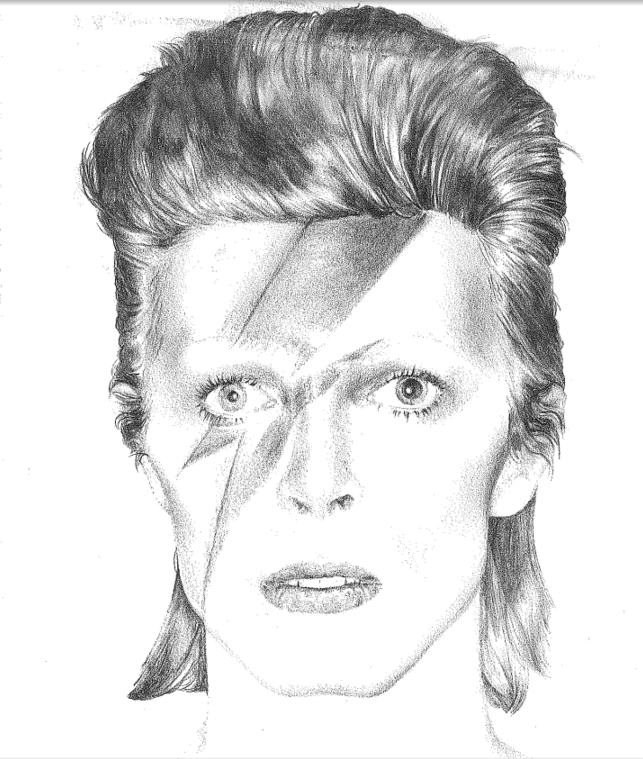Everyone walks blind into the void- In David Bowie’s music video “Lazarus,” the viewer may see similarities between it and the style in the “Labyrinth” (a 1986 fantasy film starring Bowie.) Not only do both of these pieces film Bowie dancing in tight pants, but there are also dark looming presences from the more minor characters that give both videos a sense of suspense. Illustration by Amelia
By SOPHIE FERNANDES – Print Photography Editor
David Bowie’s new album, “Blackstar,” was released on his birthday, Jan. 8, days before his death.
It truly is a monument to David Bowie’s creative drive that up until the very end of his life, he continued to intrigue his audience with new shades and colors he hadn’t introduced in his older works.
Bowie made it clear in his new album, “Blackstar” that he wanted to make a formal goodbye. Although his spirit and physical being has left the world, he has clearly left his supporters with a lasting voice and message.
Unlike his traditional pop albums from the past, the music in this LP is in a much different format. Being that “Blackstar” was produced with Tony Visconti, one can understand the style change; Bowie has left behind his sharp guitar riffs for a synth sound with jazzy tones and droning drums.
Although this new style can get a little dull, his vocals bring the sound to a whole different level. He has embraced the weariness of his voice to produce a haunting feel to the tracks “Blackstar” and “Lazarus.”
The album begins with “Blackstar,” a 10-minute single accompanied with an amazing video. To appreciate the song in full, listeners must also see the visuals. It begins with a skeletal astronaut who is quite obviously a tribute to one of his greatest hit singles, “Space Oddity.” A woman takes the jeweled skull from the body, to be used for ritual enlightenment. The body is seen floating towards the black star, conveying that although his body will be broken down, his mind’s works will continue to live on.
In “Lazarus” Bowie’s first words, “Look up here, I’m in heaven,” could be seen as a satirical representation that he is definitely not in heaven, but that he is in pain. Bowie conveys the message not all endings should be romanticized, for death can be a confusing and messy ordeal.
Overall, I highly recommend all to listen to this album, even if they are not a David Bowie fan because it will change listeners opinion on him completely.
